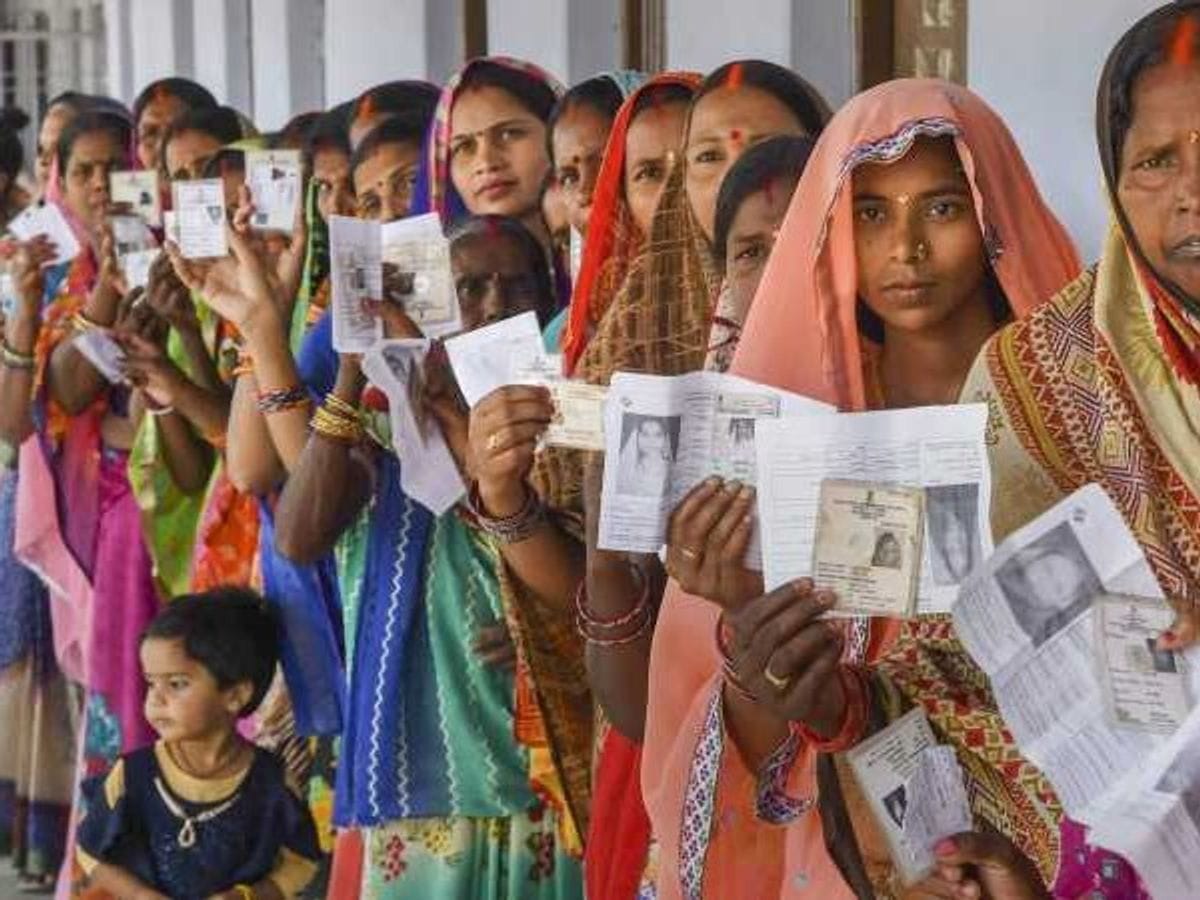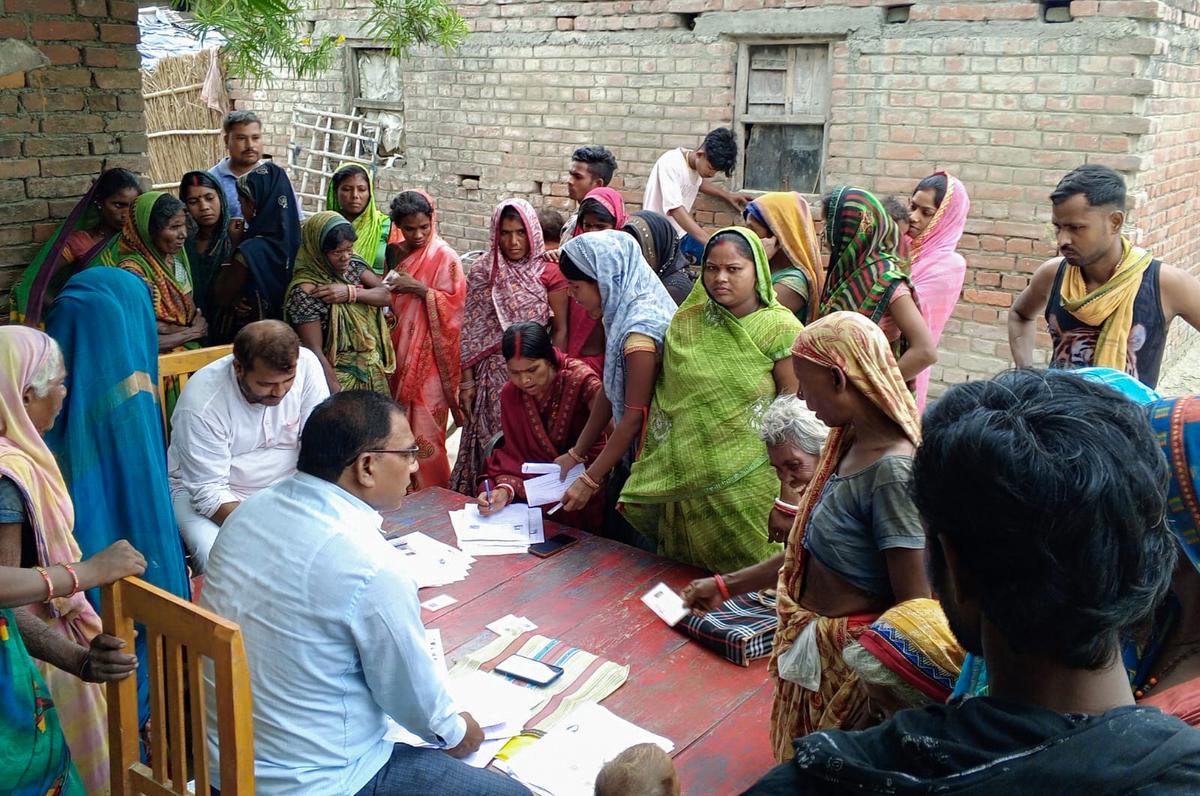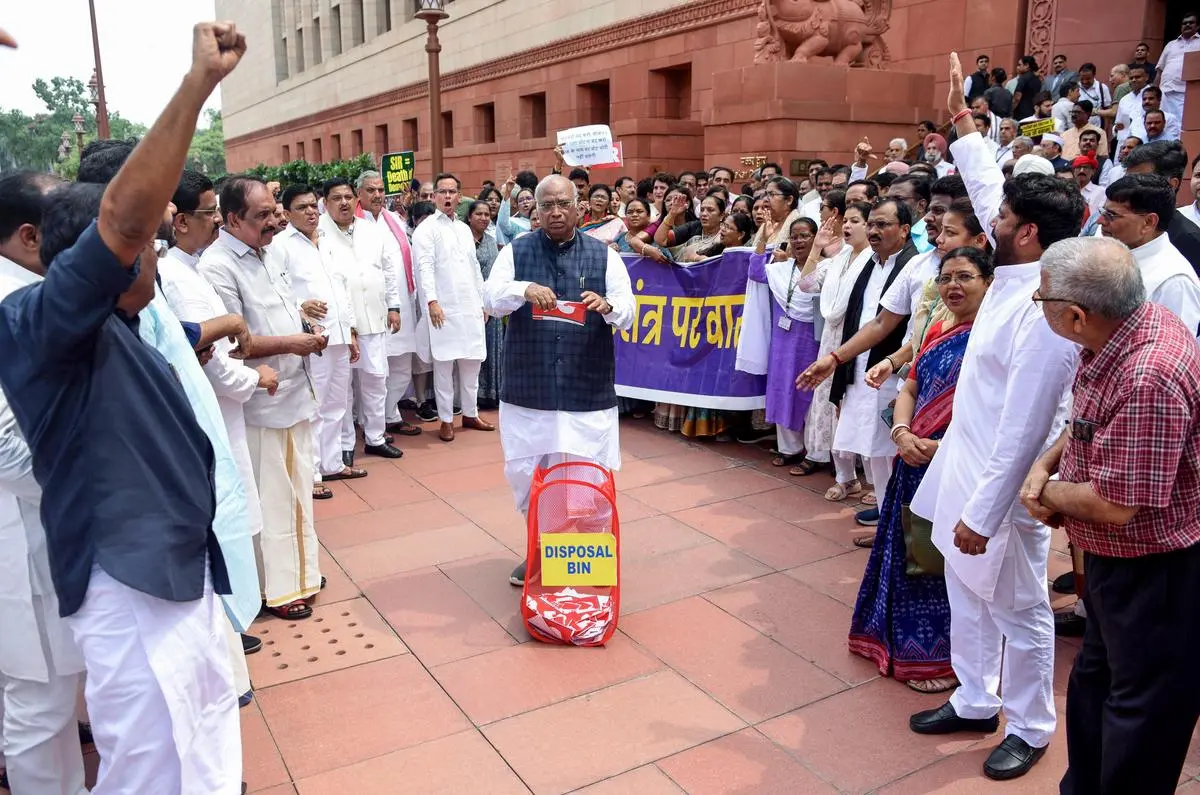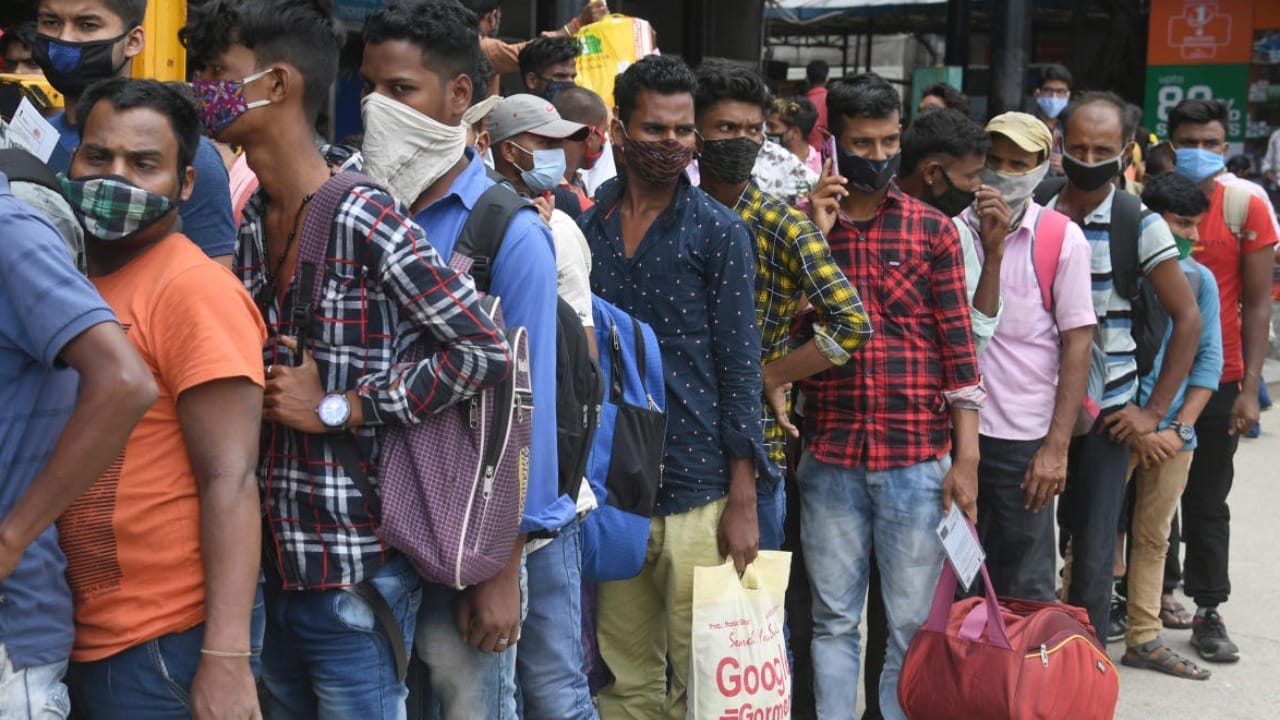Migration (palayan) is a significant socio-political concern in the context of Bihar. Bihar is scheduled to hold its elections later this year. Political parties, including the recently formed Jan Suraj, are creating an electoral discourse on migration, particularly labour migration. The issue of labour migration does not stand in isolation but is linked with marginality, poverty, unemployment, and limited access to education. Bihar records one of the highest migration rates in India, and most Biharis migrate for blue-collar work across different states, often working under vulnerable conditions at their destinations.
In most cases, they encounter silent discrimination within the host society. In this way, their identity becomes fluid. The condition raises a few critical questions: Where do they belong, the home or the destination? Where are they in the democratic process? How does the Special Intensive Revision (SIR) in Bihar impact them?
Representation and democracy
The concept of ‘democracy‘ is rooted in ancient Greece, which means rule by the demos; demos stands for ‘the many‘ or ‘the people‘. In a democracy, a government forms through a social contract and the general will of the people. Thus, a question arises: who has the right to vote, and what is the value of a vote? Western theorists, including Aristotle and J.S. Mill, among others, offer their ideas on voting.
For Aristotle, voting rights should be restricted to ‘free man‘ and exclude others, including migrants. J.S. Mill introduced ‘plural voting‘, where everybody should be given the right to vote; however, the value of a vote should be based on education, skill, and other factors that make it appear egalitarian, but implicitly disenfranchises migrants.
With the adoption of the Indian constitution on 26 January 1950, it guarantees one person-one vote to citizens regardless of their religion, race, caste, and sex. Article 325 of the Indian constitution states, ‘no person to be ineligible for inclusion in an electoral roll‘. However, it does not provide migrants with the opportunity to vote in destination areas. During elections, particularly blue-collar migrant workers either return home or forego voting due to various constrains, which include the nature of their job, inability to get paid leave, and financial constrains to travel long-distances.
For migrants in general, the postal ballot system does not exist. In this way, their political representation becomes invisible.
For migrants in general, the postal ballot system does not exist. In this way, their political representation becomes invisible. They always depend on the origin and destination for their plight to be acknowledged, but neither represents them holistically.
Data on Bihar migration
Bihar is special in the case of labour migration, vulnerability, and regional underdevelopment. It has the highest net migration rate (2011 census) with an unemployment rate of 3.9 percent (MoSPI, 2023). A Hyderabad-based researcher, Amrita Datta, in her longitudinal research, found that out-migration from Bihar has increased for work; the percentage of households with migrants increased from 45 per cent in 1999 to 65 per cent in 2016.
Particularly in the case of Bihar, there are various migration corridors, including West Bengal, Delhi, Gujarat, Maharashtra, Tamil Nadu, and Kerala. Given the discussed socio-economic context of migrants, it generally becomes difficult for them to participate in the democratic process. The ongoing SIR in Bihar makes the process more difficult.
Special Intensive Revision (SIR) and Bihar electoral roll
The Special Intensive Revision (SIR) is a focused exercise conducted by Election commission of India (ECI) to verify voters. Article 324 of the Indian Constitution and Section 21 of the Representation of the People Act, 1950 give power to ECI to conduct SIR. The last intensive revision in Bihar was conducted in 2003 which comprised 4.96 crore of electors. On 24th June 2025, ECI came with notification to conduct SIR within a month.
According to the 2024 Lok Sabha election, there are 7.9 crore voters in Bihar. The timing and duration of conducting SIR is questionable for the Bihar election which is due later this year and is to be held during monsoon when the whole of Bihar suffers from the wrath of flood.
Expecting to include every eligible voter in the new electoral roll in a very short span of time in the monsoon season is a utopian idea. In this way, SIR put the onus on individuals to prove their democratic right to vote. Out of total voters, significant numbers are migrants who stay outside of Bihar for various reasons, majorly interstate migrant workers.
Out of total voters, significant numbers are migrants who stay outside of Bihar for various reasons, majorly interstate migrant workers.
Given the socio-economic precarity of migrants, it is challenging to return home to be in the electoral roll in a limited time. SIR notification was so abrupt that it sparked widespread public anxiety, particularly because the last 2003 SIR is absent from collective memory. People have started calling it ‘votebandi (disenfranchisement),‘ comparing it to’notebandi (demonetisation),‘ fearing exclusion.
SIR: a challenging task for ECI and the way forward
ECI notification says, ‘no eligible citizen is left out while no ineligible person is included in the Electoral Roll‘. The limited time, mentioned documents, unawareness, management arbitrariness, hatred, misinformation, and existing infrastructure have the potential to disenfranchise lakhs of Bihari marginalised citizens, including migrants and prevent them from enjoying democratic rights. It is a challenging task for ECI to maintain its institutional credibility and conduct SIR in Bihar without leaving ‘eligible citizens‘ at Bhagwan Bharose (God’s mercy).
ECI should closely monitor the situation at the grassroots regarding mismanagement, exclusion, corruption, and extend the timeframe so that elected representatives represent people, not an oligarchy. Considering with short term solution for the current Bihar SIR, for the broader question of representation and democratic rights of migrants, ECI should think of bringing postal ballot or online voting system. In this way, democratic rights will be enjoyed by migrants and their voice will be heard at destination so that migration would not be a process of compulsion but of will.
About the author(s)
Anand Raj is a PhD scholar in the Department of Liberal Arts at IIT Hyderabad. His areas of interest are gig work, urbanisation, migration, and youth studies. In addition, he is a volunteer researcher at Telangana Gig and Platform Workers Union (TGPWU).








